| Share |  |
 | |||
Detoxifying for Better Health, Part 2: "Preparing the Pathways"
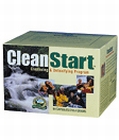 Detoxification is the process of the assisting the body in cleansing itself of accumulated toxins stored deep within tissues and cells. Before starting such a program, it is extremely important to make certain that the organs involved are functioning effectively, so that “exit” pathways are clear. In order to leave the body, a toxin must have a clear path, either through the intestinal tract (colon), the mucus membranes of the respiratory tract, the urinary tract (kidneys) or the skin. Any blockage or weakness in any one of these systems places an additional burden on the other systems and lessens the body’s ability to be free of the harmful toxins that hinder optimal health.
Detoxification is the process of the assisting the body in cleansing itself of accumulated toxins stored deep within tissues and cells. Before starting such a program, it is extremely important to make certain that the organs involved are functioning effectively, so that “exit” pathways are clear. In order to leave the body, a toxin must have a clear path, either through the intestinal tract (colon), the mucus membranes of the respiratory tract, the urinary tract (kidneys) or the skin. Any blockage or weakness in any one of these systems places an additional burden on the other systems and lessens the body’s ability to be free of the harmful toxins that hinder optimal health.
The First Priority
The overall health of the body depends largely upon the efficiency of the intestinal tract to break down food and absorb nutrients as well as to eliminate waste and toxins. Since dysfunctions of the digestive and intestinal tract are root causes of the great majority of chronic and degenerative diseases, having a clean intestinal tract that facilitates quick elimination of toxins from the body is essential. Cleansing the colon and making sure it is working at optimum levels should therefore occur before measures are taken to cleanse the liver or other detoxification organs.
Ideally, the elimination of waste should follow each meal. Modern diets typically consist of foods with refined low-fiber, high sugar, and altered fat content. None of these ingredients promote healthy colon function. Toxins are further backed-up in the colon because of failure to drink adequate amounts of water or the tendency to delay “nature’s call” for the sake of convenience or due to an overly busy schedule. 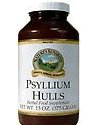 When foods are not sufficiently broken down by the digestive system and the colon is sluggish in excreting them, these foods “rot” in the intestinal tract: proteins putrefy, carbohydrates ferment and oils turn rancid. Instead of nutrients from these foods getting into the bloodstream through the small intestine to nourish cells, these and other toxins are absorbed in a “self-poisoning” process known as auto-intoxification. As they recirculate in the bloodstream, they may damage or stress other organs and tissues of the body.
When foods are not sufficiently broken down by the digestive system and the colon is sluggish in excreting them, these foods “rot” in the intestinal tract: proteins putrefy, carbohydrates ferment and oils turn rancid. Instead of nutrients from these foods getting into the bloodstream through the small intestine to nourish cells, these and other toxins are absorbed in a “self-poisoning” process known as auto-intoxification. As they recirculate in the bloodstream, they may damage or stress other organs and tissues of the body.
Toxic waste backed up in the intestines also creates inflammation of the mucus membrane that lines the digestive tract. These membranes function as filters to both absorb nutrients and prevent wastes and poisonous substances from entering the body. When the mucus membranes get overloaded with toxic material, they become irritated and inflamed and can no longer absorb and process nutrients. At this point, the mucus lining of the small intestine can break down, resulting in the absorption of toxic materials into the blood and lymph streams. This absorption often leads to a condition known as leaky gut syndrome and further more serious bowel conditions, such as ulcerative colitis, Crohn’s and Celiac’s disease.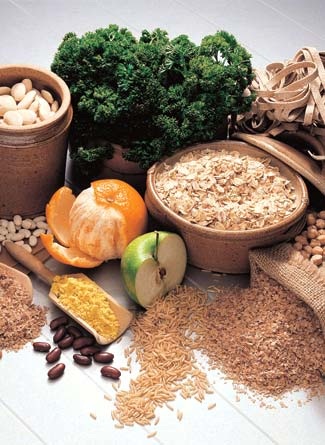 Building Good Intestinal Health
Building Good Intestinal Health
Intestinal cleansing concerns more than just getting bowels to move. It also involves eliminating whatever irritations are causing the inflammation and leaky gut syndrome (see sections on leaky gut syndrome in my article “Food Allergies – Could They Be Your Problem?” to learn what irritations to eliminate). The mucus lining of the intestine needs to be rebuilt and a proper balance of intestinal flora (beneficial bacteria) restored for healthy intestinal function to occur.
Some ways to support good digestive and intestinal health are:
- Drink half your body weight in ounces of pure water (add extra for any caffeinated beverage you consume since caffeine is dehydrating). Increase the amount of fiber-rich fruits, vegetables, whole grains, nuts and seeds in your diet.
- Avoid foods high in refined sugar and flour (these ingredients deplete nutrients and clog the intestines).
- Get extra fiber by using a good supplemental fiber blend to help absorb toxins in the intestinal tract and improve ease of elimination. A good fiber blend contains natural fibers such as psyllium hulls, oat bran, apple pectin, slippery elm or flax seed, and does not contain added sweeteners, artificial colors or flavors.
- Supplement your diet with plant-based digestive enzymes when eating foods that are enzyme deficient (that is, everything that is not either raw or organic). These enzymes will help you break down the foods you eat, thereby assisting digestion and easing the burden on your generally over-worked digestive system.
- Develop good eating habits:
- Chew your food well.
- Don’t drink a lot of liquid with meals. Liquids taken with meals dilute stomach acids, which in turn reduce the efficiency of those acids in breaking down foods into their vital nutrients.
- Don’t eat when you are emotionally stressed.
- Don’t overload the digestive organs by eating too much at one time.
- Avoid consuming foods together that do not digest well with each other (for example, always eat fruit on a empty stomach to maximize its cleansing properties and avoid it fermenting, which can happen when it is eaten with or right after proteins and starches that take much longer to digest. Fermentation usually results in the formation of acid, gas and bloating. For further information or understanding on any of these points, I would refer you to my article “Digestion: It All Starts Here.”
- Build up the “friendly” flora in your gut by eating foods that contain live strains of beneficial bacteria, such as acidophilus or bifidus, or use a good probiotic supplement.
- Use a good herbal colon cleansing formula that contains herbs such as cascara sagrada, senna, Oregon grape root, slippery elm bark, marshmallow root, rhubarb root, and aloe vera (more detailed recommendations will be made in a future article).
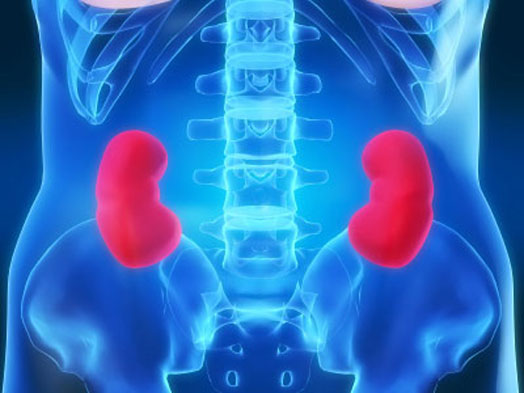 The Body’s Twin Filters
The Body’s Twin Filters
Since everything that circulates through the bloodstream is eventually filtered through the kidneys, an overload of toxins is especially taxing on this organ and the entire urinary system. Pesticides, food additives, medications (especially painkillers), heavy metals (i.e. mercury fillings), alcohol, caffeine, and refined table salt puts extra stress on this important filter of the body.
The job of the kidneys is to remove waste and potential toxins from the blood, reabsorb compounds useful to the body and produce urine to carry the remaining waste out of the body. The kidneys control the body’s fluid concentrations and sodium/potassium balance by regulating how much water and salt is either reabsorbed or excreted in the urine. The other major function of the kidneys is to maintain the body’s pH balance by filtering acid waste from the blood.
In addition, the kidneys secrete important hormones that regulate red blood cell production and blood pressure (lessening the toxic load on the kidneys can play an important part in normalizing blood pressure). They are also involved in the creation of the active form of vitamin D, calcitriol.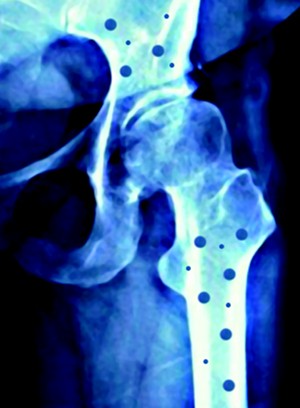
The Effect of Toxins on Kidneys
Besides the normal waste by-products of cellular metabolism, the kidneys have the added burden of filtering whatever toxins entered the bloodstream that were not broken down by the liver. They also are responsible for eliminating urea, ammonia and other nitrogen waste products created when protein is broken down into amino acids.
Acid waste is the primary toxin that the kidney must process. High levels of acidity creates problems for the body as a whole, because any acid not dealt with by the kidneys needs to be counteracted by the body in other ways in order to balance the pH of the blood. To maintain this pH balance, the body will do whatever it needs to do, including “stealing” potassium and magnesium from muscles and calcium from bones. This depletion of vital nutrients can result in muscle tension, joint pain, and weakened bones and joints.
Furthermore, kidneys that are overloaded with too many irritants can become inflamed if sufficient water and nutrients are not available for them to do their job effectively. This inflammation can lead to irritable bladder or infections of the kidney and bladder. Moreover, kidney stones can develop with the build-up of toxins, inadequate water consumption and an excess concentration of free calcium (calcium that is not bound to fats or protein) in the urine. Other common symptoms associated with poor kidney function are water retention and swelling, abnormal blood pressure, toxemia during pregnancy, low back pain, low energy and a susceptibility to infection.
Helping the Kidneys Detoxify
To support good kidney function and assist in their cleansing and detoxification: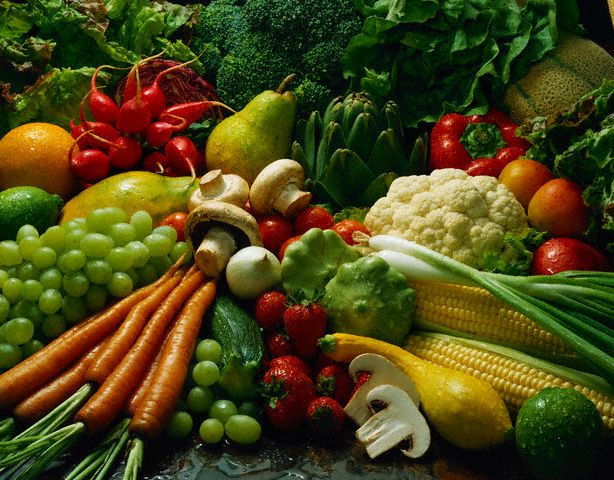
- Drink ample amounts of water to flush out harmful toxins and waste by-products from normal metabolic processes of the body.
- Eat more alkaline foods - primarily raw fruits (cooked fruits are acidic) and raw or cooked vegetables - and reduce sources of acidity in the diet such as soda, coffee, sugar, flour products, meats and dairy products.
- Reduce amounts of beef and other animal protein foods; they create more excess nitrogen waste products than the kidneys can efficiently process.
- Restrict inorganic sodium chloride (table salt) from the saltshaker and from processed food that contain high amounts of it. Instead, use mineral rich, unprocessed salts (I would recommend unrefined sea salt such as Celtic, Redmond or Himalayan salts).
- Do an occasional juice fast to assist kidneys in flushing acids. Cranberry juice (100% pure diluted with four parts purified water (not cranberry juice cocktail or blended cranberry juice with added sweetener) is particularly beneficial for flushing and nourishing the kidneys.
- Use a good herbal kidney cleansing formula or drink herbal teas containing herbs with a diuretic effect such as asparagus, buchu, celery, cleavers, couch grass, dandelion, goldenrod, juniper, nettles, parsley, etc. (more specific recommendations to follow in a future “how to” cleansing article).
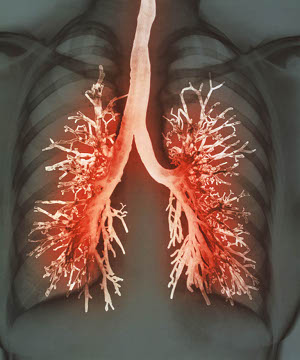 Respiratory Back-up
Respiratory Back-up
The respiratory system is the primary channel of elimination for carbon dioxide and toxins in gaseous forms. It also serves as a back-up when the lymphatic system is congested because of a clogged colon. The toxins are eliminated through excess mucus created to flush out irritants, bacteria and viruses. Evidence of toxins in the respiratory system include mucus discharge, asthma, allergies and frequent sinus or other respiratory ailments.
Cleansing the colon and flushing the kidneys is the best way to deal with frequent bouts with respiratory congestion. Certain herbs, such as fenugreek, mullein, fennel and thyme, act as decongestants that help to break up mucus and lymphatic fluid buildup, while herbal expectorants can aid in expelling mucus and debris from the respiratory passages.
The Largest Eliminative Organ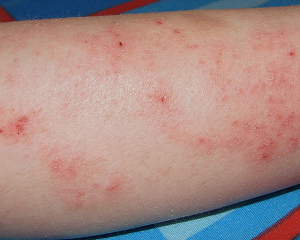
The skin is the largest organ of elimination, serving as a back-up to both the kidneys and liver. The skin is a reflection of the inner health of the body. Therefore, the elimination of toxins through the skin generally means that one or more of the other channels of elimination are clogged. Toxins can come out of the body through the skin as acne, eczema, rashes, allergies and even body odor.
A rash is usually an inflammation created as toxins pass through the skin to eliminate them from the body. Excessive body odor typically means that the body is toxic. 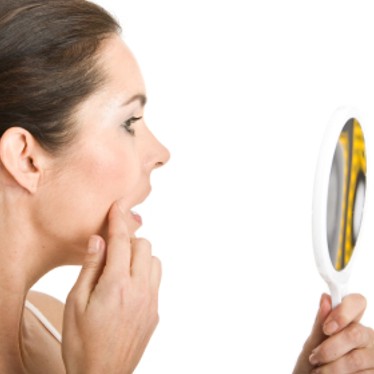 If toxins cannot be eliminated any other way, they are forced through the sweat glands; unpleasant odor is created as bacteria are broken down during this process. Using an anti-perspirant deodorant makes the body even more toxic as it plugs these sweat glands. The real “secret” of reducing body odor is to increase the effectiveness of the body’s other toxin elimination systems.
If toxins cannot be eliminated any other way, they are forced through the sweat glands; unpleasant odor is created as bacteria are broken down during this process. Using an anti-perspirant deodorant makes the body even more toxic as it plugs these sweat glands. The real “secret” of reducing body odor is to increase the effectiveness of the body’s other toxin elimination systems.
Oil glands are intended to secrete substances onto the skin to keep it soft and moist. When they are pressed into service to eliminate toxic fats, they can become inflamed, which in turn can result in pimples and blackheads.
Sweating can be a means of eliminating water-soluble toxins and taking some of the load off the kidneys. Any means of increasing perspiration helps sweat glands open up, increasing elimination through the skin. Saunas, steam baths, sweat lodges and hot baths help induce perspiration and therefore assist with the elimination of toxins from the skin. Although its primary benefit is improved circulation and lymphatic fluid movement, skin brushing (using a natural bristle skin brush) removes dead tissue from skin pores. This opens the pores of the skin to more effectively eliminate toxins through the skin.
Conclusion
Proper functioning of colon, kidneys, lungs and skin are vital to the proper detoxification of our bodies, but detoxification does not end with these systems. There are two key internal detoxification systems still to be discussed– the liver and the lymphatic system. These two important systems are responsible for the actual breakdown and removal of toxins from the cells and tissues of the body. In next month’s article we will look at how these systems work and what it takes for the body to successfully detoxify.
Sources:
- Coming Clean - Your Guide to Detoxifying the Body by Steven H. Horne, AHG
- The 4-Week Detox Plan by Michelle Schoffro Cook, DNM, DAC, CNC
- The Detox Solution by Patricia Fitzgerald, PhD
Copyright © 2008-2015 Lucinda Bedogne, CNHP, CNC
Post Your Comment...
|
|
||||||||||||



